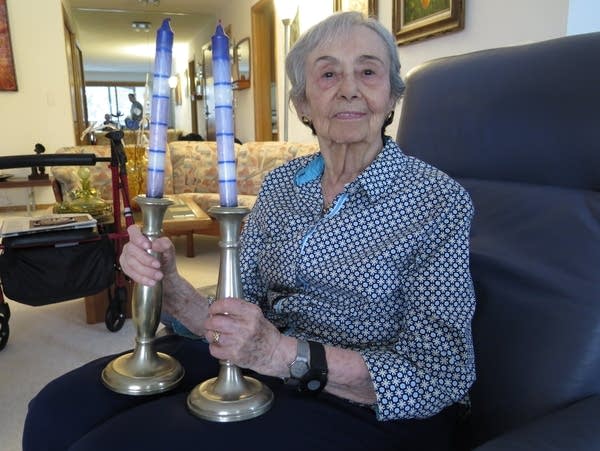Auschwitz survivors share their stories on 75th anniversary of camp liberation

Judy Baron's entire family was deported from a small town in Hungary in the spring of 1944. The 91-year-old, who now lives in Golden Valley, was the only person in her family of five to survive Nazi death camps. A pair of candlesticks her mother used to light for Shabbat is all that's left of her family's life before the Holocaust.
Tim Nelson | MPR News
Go Deeper.
Create an account or log in to save stories.
Like this?
Thanks for liking this story! We have added it to a list of your favorite stories.


